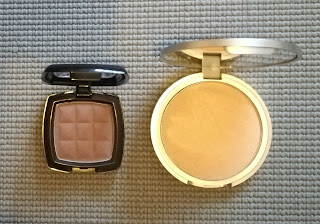'What the Health' is an American based documentary made by the creators of 'Cowspiracy' and follows filmmaker Kip Anderson as he looks at how diet, specifically a vegan diet, can have a positive affect on chronic diseases that many American's face today. In the film they talk to medical doctors, researchers, and consumer advocates about this. It also investigates the possible role pharmaceutical companies, agribusiness, and processed meat companies might be having on American health non-profit organizations and the fact they do not only advocate a vegan diet, on the results funding might have on the outcome of research done into the impact of meat and dairy on the health issues we face in the Western world, and the decisions the US Government make when forming policies. This all leads to large costs in people's health care, as well as keeping them sick.
What I liked about this documentary was it pointing out the possible bias issue that can come about when research is funded by specific organizations. It is not necessarily the case that if a researcher is funded by the meat industry that they are going to find that meat is great, that's far to simplistic, but it does mean that the results and data do need to be checked and confirmed before we can be certain that the results have not been led. It is also true that a personal bias can also play a role, such as already believing you can only get calcium from milk means you unconsciously find the results that you can only get calcium from milk. However, and to be clear, this can also happen the other way. If someone believes that being vegan is the only way or are funding by a vegan based organization they can also show bias in their results. In both cases, we must be very aware of these possible biases when we are looking at research and data.
What I didn't like about 'What the Health' is that I got the feeling that they were cherry picking the research that they were showing in the documentary to fit the result they wanted it to show (basically what I warned about in the previous paragraph). I know that there is research out there that shows different results to what they were talking about and I think it would be refreshing to have a documentary that gave a more rounded look at the issues of diet and health. When watching any documentary it's always important to remember that the makers have a specific message they are wanting to put across and it's always worth doing more research yourself.
I also a little uncomfortable with the premise that if you changed your diet to a vegan your health issues would all disappear.......very quickly. Again, this is a little too simplistic and not always the case. It is true that a healthy plant-based diet can help reduce your chances of getting diseases like cholesterol, diabetes and cancer, and, with cholesterol and diabetes at least, changing to a plant-based diet has been shown to reverse these diseases in a number of people, but not all. Whilst I do believe, from what I've researched myself, that a healthy, plant-based diet is your best chance of staying healthy it will not stop everything and there are those out there who will still get cancer and heart disease. It is one of the sad truths of life.
I should probably say now that I am not against a vegan diet or documentaries that show the benefit of a plant base diet can have on the health. It's what I'm aiming for myself once I have worked out exactly what I'm allergic to (that's a long story and I'm keeping my fingers crossed it's not nuts). I'm also not against documentaries that question the possible bias of organizations based on the funding they receive, we should all do it. But I don't think demonising health organisations that seem to be genuinely trying to help people and understand that complete changes in people's diet are rarely stuck to, or cherry picking your studies are a particularly good way to go. To me the vegan diet is important because it has large environmental benefits, will help us combat global warming, has been shown to have a large number of health benefits for most people (but as with everything, one size doesn't fit all and it would be irresponsible to say it will work for everyone), and that other living creatures are not put through appalling treatment to provide us with a food source we don't necessarily need. To me those are good enough reasons and we don't need to skew the data to get the point across.
If you would like to watch the movie you can online here. If you also want to watch someone questioning the movie a little bit more succinctly then I do then it's worth watching Unnatural Vegan's video on it.
So what do you think of the film? Did you have questions about what they were saying or did you really like it? Let me know below?











